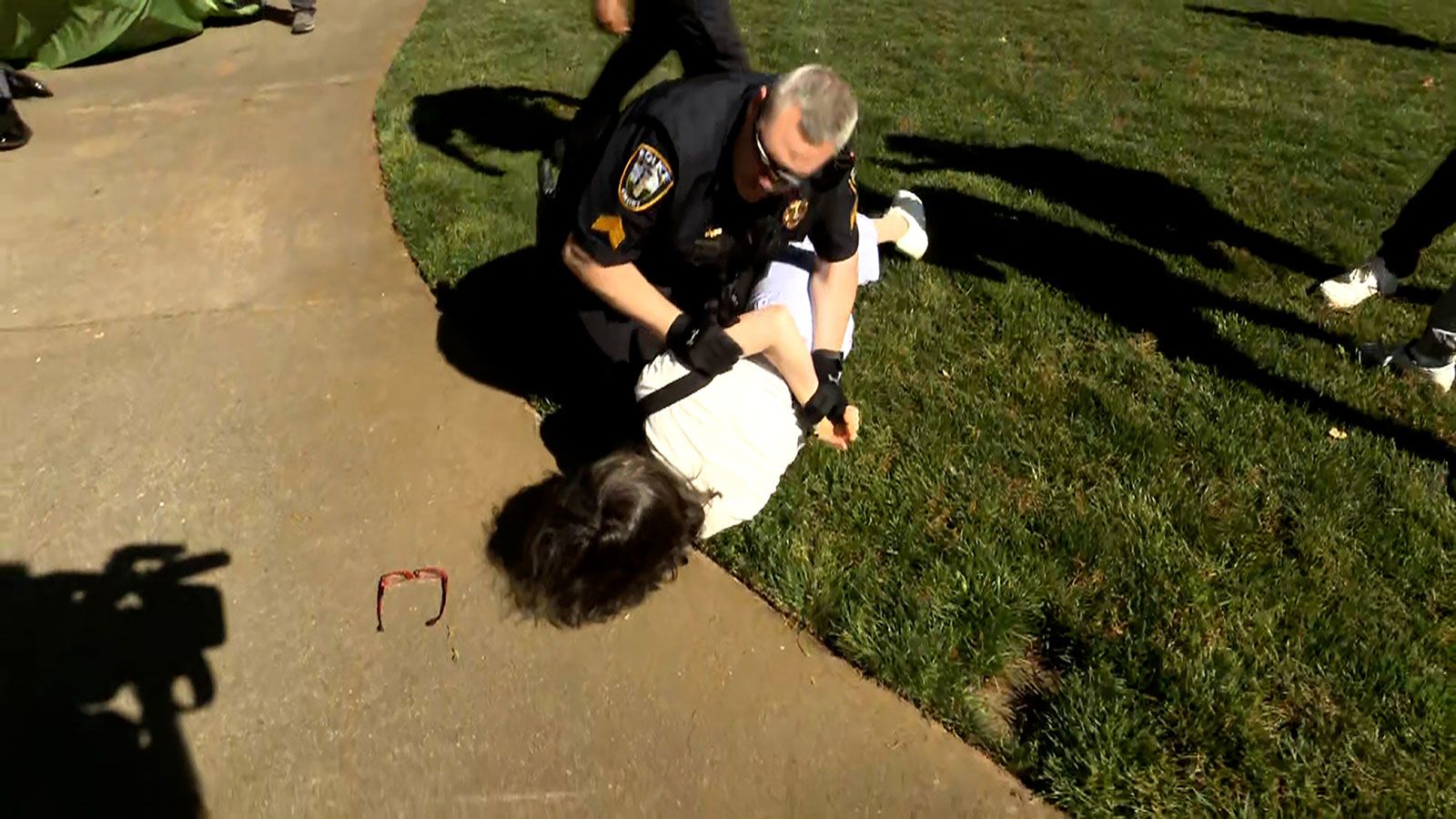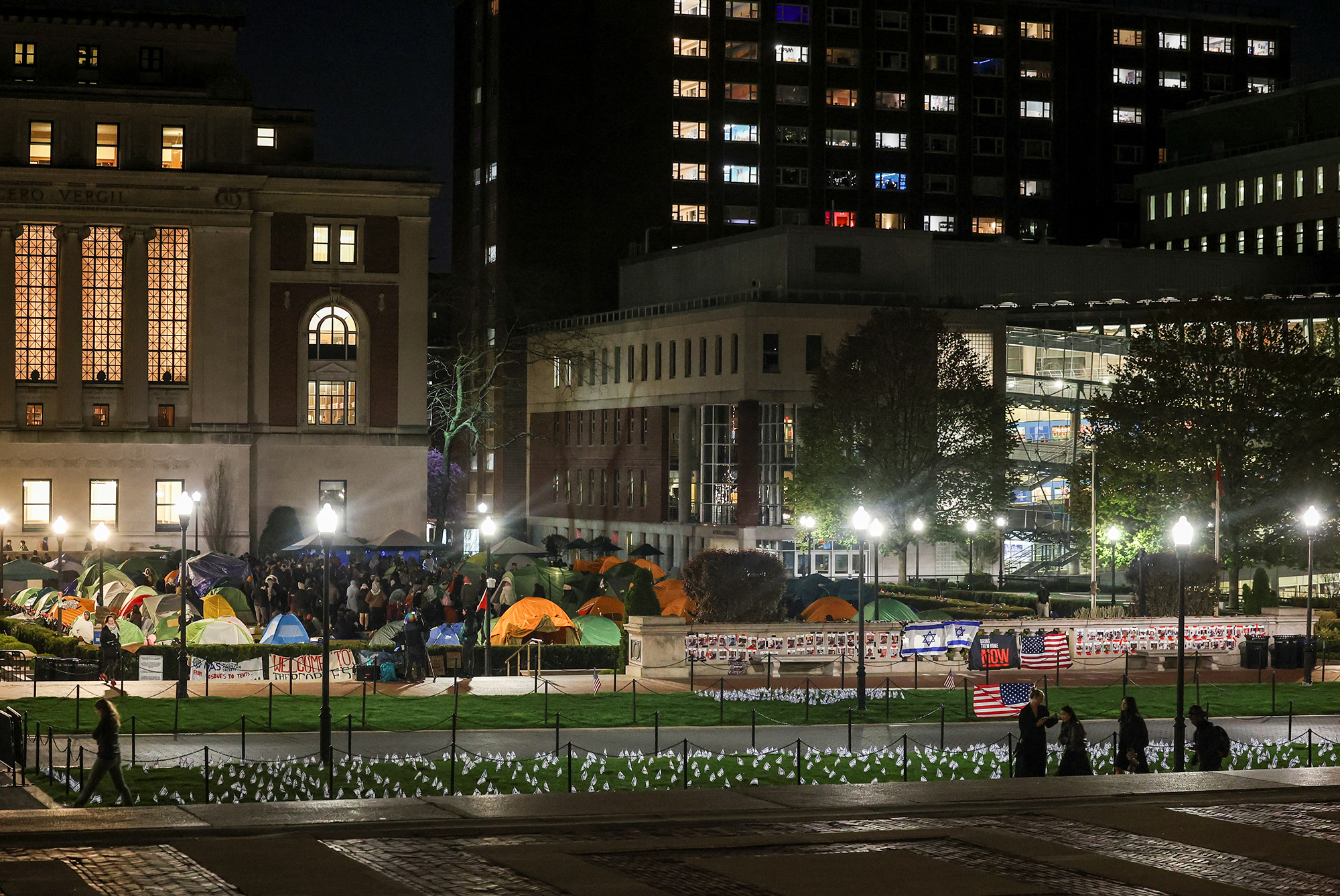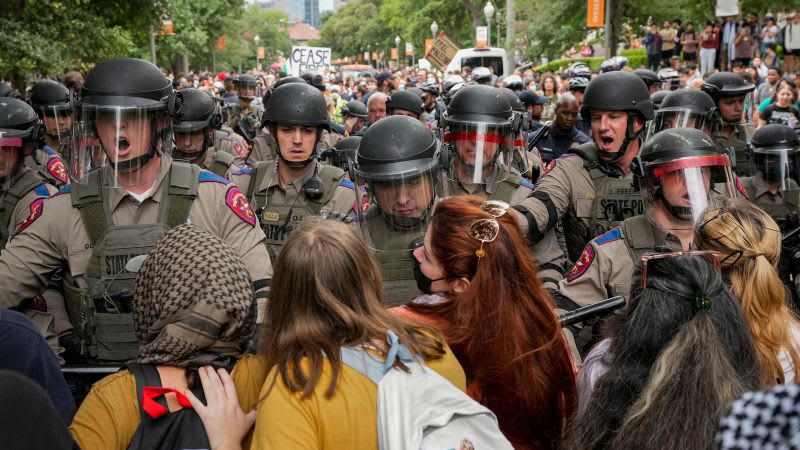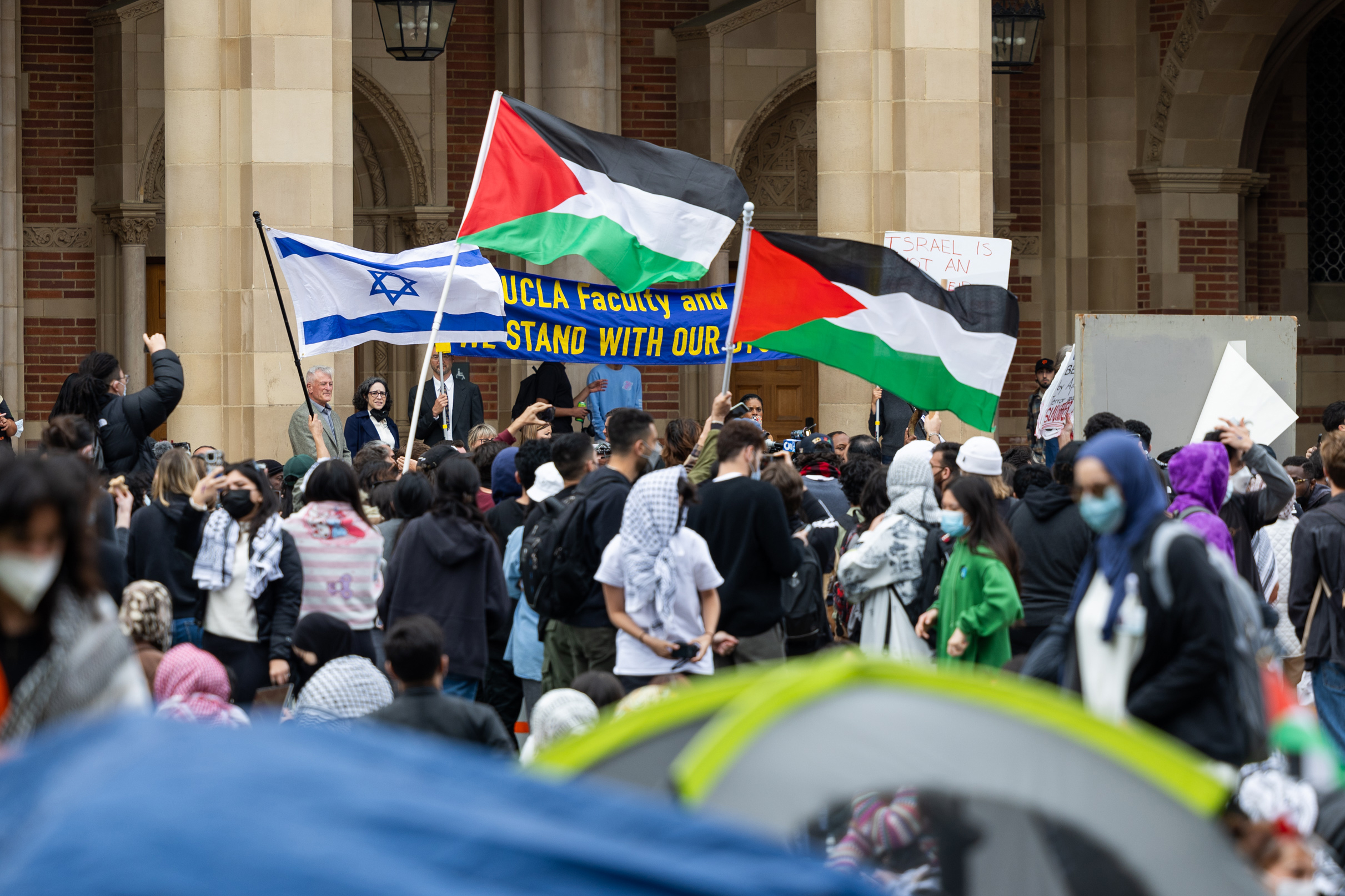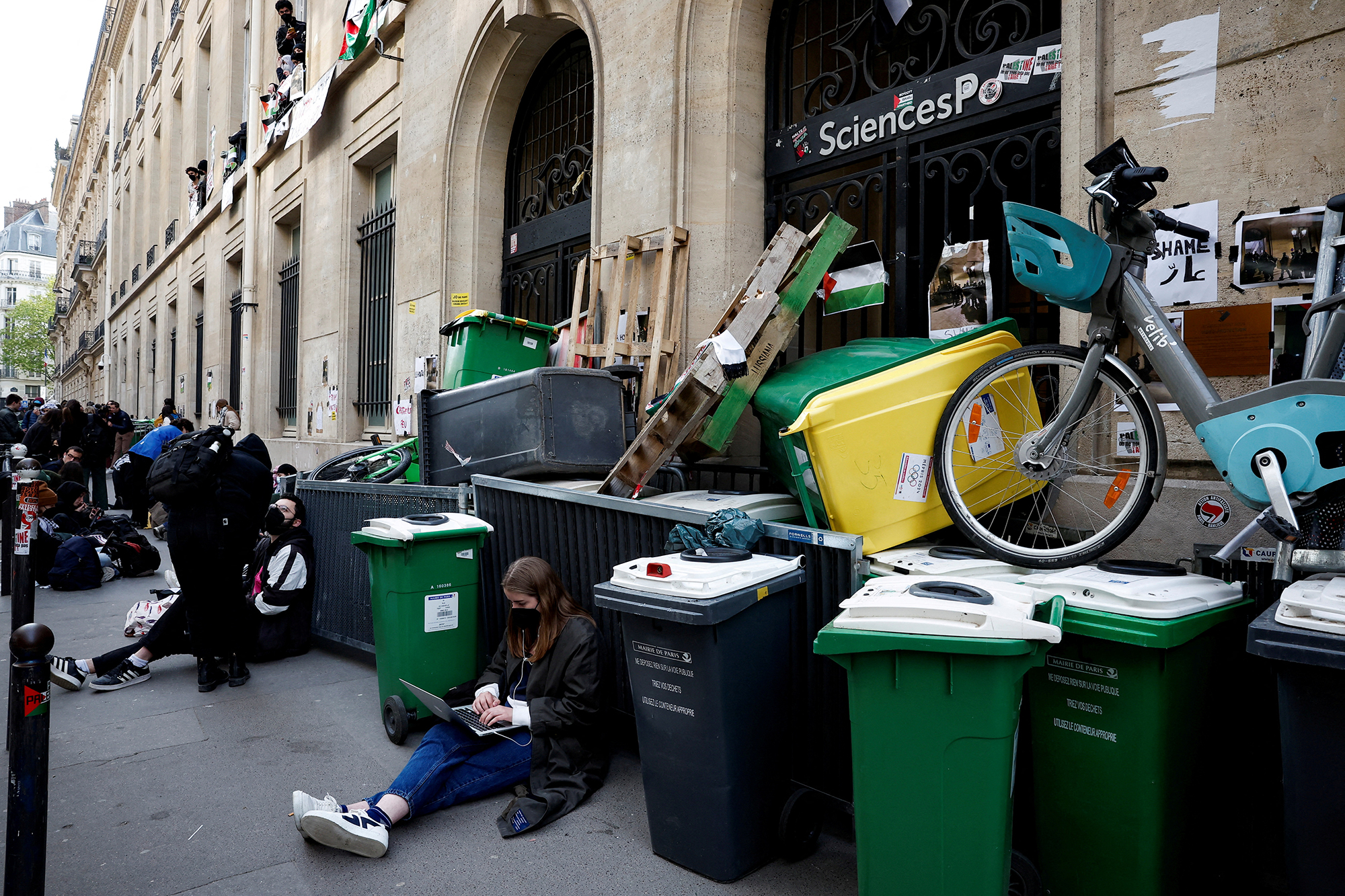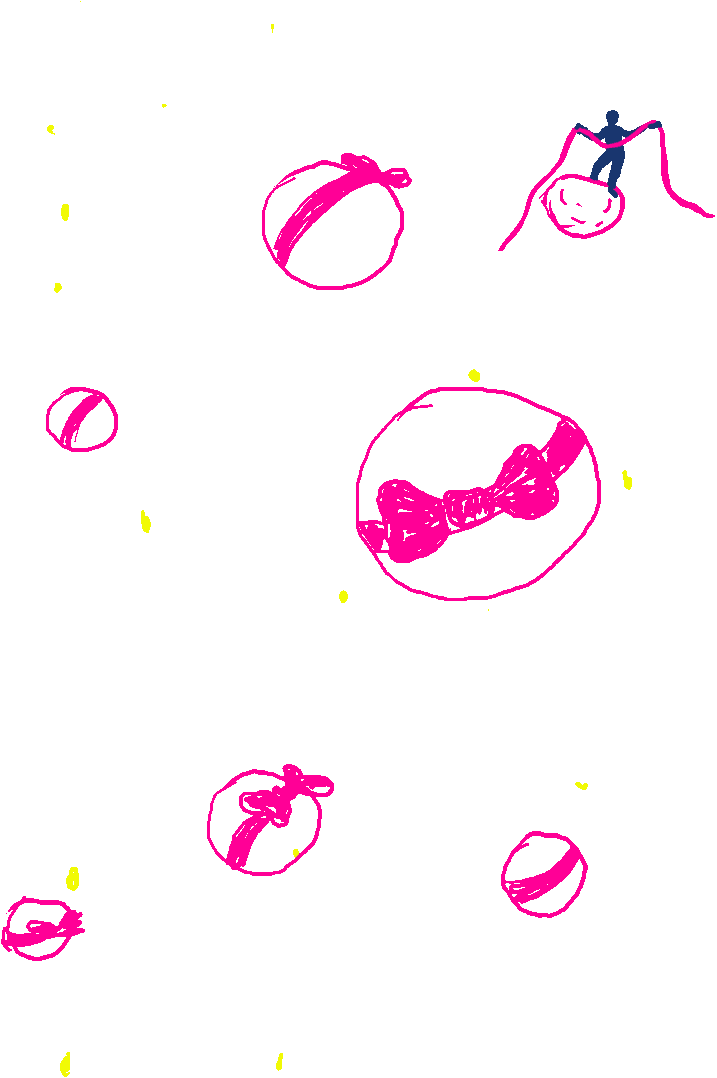A Columbia student who has spoken on behalf of pro-Palestinian protesters has apologized for saying on video that "Zionists don’t deserve to live."
Khymani James, a student activist associated with the Columbia University Apartheid Divest (CUAD) coalition acknowledged the statement in a post on X, saying it was from an Instagram Live video in January. “I misspoke in the heat of the moment, for which I apologize."
The apology came early Friday morning, hours after an interview with CNN at Columbia where James repeatedly declined to apologize for the video, saying that the focus should be on Palestinian liberation.
The video of the comments, which was posted by a pro-Israel group, circulated on social media in recent days, prompting online outrage.
The portion of the video that has been reposted online shows James saying, “Zionists – they don’t deserve to live comfortably, let alone Zionists don’t deserve to live. The same way we’re very comfortable accepting that Nazis don’t deserve to live, racists don’t deserve to live – Zionists, they shouldn’t live in this world.”
CNN reached out for comment Thursday to the organization that posted the video and to request a copy of the full Instagram post, and did not receive a response.
In the new statement, James says, “Far-right agitators went through months of my social media feed until they found a clip that they edited without context,” but added that CUAD and the Gaza Solidarity Encampment, another group of protesters at Columbia, "have made clear that my words in January, prior to my involvement with CUAD, are not in line with the CUAD community guidelines."
In a statement, CUAD said, “Khymani’s words in January do not reflect his views, our values, nor the encampment’s community agreements. We believe in the sanctity of all life, and believe our work is in changing minds and hearts.” CNN asked CUAD what position James has in the organization, and a spokesperson responded, “like most participants in the protest, he has no formal or elected role.”
Asked about whether Columbia had fielded concerns about the video remarks, a spokesperson for the school told CNN, “While we do not comment on individual cases, when there are violations of student conduct policies, they are reviewed and disciplinary measures are applied.”
CNN's Miguel Marquez contributed to this report.
